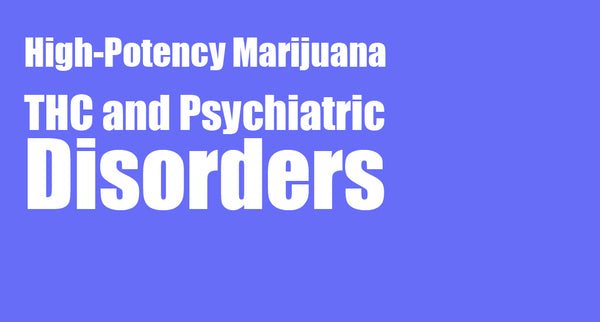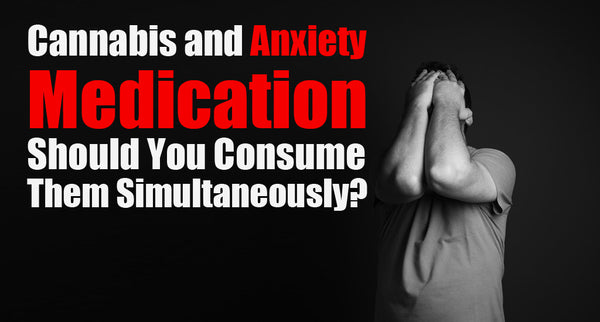
Cannabis and the Brain: How THC Affects Memory, Attention, and Emotion
Cannabis, a plant with a history spanning thousands of years, has significant effects on both mind and body. Scientific research has highlighted its influence on pain, inflammation, stress, nausea, appetite, and energy levels. While offering medical benefits for conditions like cancer, epilepsy, and chronic pain, one of its cannabinoids, THC (tetrahydrocannabinol), is known for its profound and varied effects on the brain, both short-term and long-term.
THC and Memory
Memory degradation is a common aspect of aging. However, research suggests that regular and repeated use of THC-rich cannabis may accelerate this decline. THC's interaction with memory-centric brain regions, like the hippocampus, amygdala, and cerebral cortex, disrupts their normal functioning, potentially hastening memory loss. This is particularly concerning for habitual cannabis users.
-
Neurobiological Mechanisms: THC modifies the neurotransmitter activity in the brain, especially affecting substances like glutamate and GABA in the hippocampus. This alteration disrupts the neural pathways critical for memory formation and recall.
-
Individual Variability in Response: The impact of THC on memory can vary greatly among individuals. Factors such as genetic predisposition and the baseline health of the brain play a significant role in determining the extent of memory impairment.
-
Impact of Age of Onset: The age at which one starts using cannabis is crucial. Younger users, especially adolescents, may experience more profound memory disruptions compared to those who begin cannabis use in adulthood, due to ongoing brain development.
-
Role of Dosage and Frequency: The extent of memory impairment is closely linked to both the frequency and the dosage of THC consumption. Higher doses and more frequent use typically lead to more significant memory deficits.
-
Potential for Cognitive Recovery: There is potential for memory and cognitive functions to improve after discontinuing cannabis use. This recovery is more pronounced in individuals who began using cannabis in adulthood rather than in their youth.
-
Interplay with Other Cognitive Domains: THC's impact on memory is often compounded by its effects on other cognitive functions, such as executive function and processing speed, leading to a broader cognitive decline.
-
Longitudinal Studies and Research Trends: Ongoing and future longitudinal studies are crucial in providing more definitive insights into THC's long-term impact on memory. Such research is essential in understanding the full extent of THC’s cognitive implications.
How THC Affects Short-Term Memory
Users of high-THC cannabis frequently report experiencing temporary forgetfulness and slowed cognitive function. Scientifically, this is linked to THC binding to cannabinoid receptors in memory-related brain regions, such as the hippocampus, disrupting memory formation and processing. These temporary impairments lead to concerns regarding THC’s impact on everyday cognitive tasks and decision-making.
-
Specific Cognitive Functions Impacted: THC notably affects working memory, which is essential for tasks requiring immediate recall and processing, such as following directions or juggling multiple tasks simultaneously. It also impacts prospective memory, which involves remembering to perform future tasks.
-
Temporal Dynamics of THC Effects: The duration of cognitive impairments varies depending on factors like THC concentration, consumption method, and individual metabolic differences. Understanding these dynamics is crucial for assessing the immediate impact of THC consumption.
-
Impact on Daily Activities: The cognitive disruptions caused by THC can significantly affect daily activities, particularly those requiring sharp memory and concentration, such as driving, working, or engaging in complex tasks that demand sustained focus and rapid decision-making.
-
Differential Effects Based on Strain and Consumption Patterns: Different cannabis strains with varying THC/CBD ratios can have diverse impacts on cognitive functions. Regular users might experience different levels of impairment compared to occasional users, indicating the influence of consumption patterns on cognitive effects.
-
Adaptation and Tolerance: There is a possibility of developing tolerance to THC's cognitive effects. Habitual users might find a decrease in the severity of memory and cognitive impairments over time, suggesting a potential adaptation of the brain to regular THC exposure.
-
Interaction with Other Neurological Processes: THC's influence on memory-related areas might also affect other neurological processes, such as emotional regulation and sensory perception, thereby further impacting overall cognitive function.
-
Research on Reversible Effects: Studies investigating the reversibility of cognitive impairments induced by THC are essential. While some effects seem to diminish after THC is metabolized, ongoing research is needed to determine the extent of long-term reversibility, especially with frequent use.
How THC Affects Long-Term Memory
The long-term effects of THC on memory are multifaceted and still not completely understood due to various influencing factors. While animal studies provide some insights, the complexity of these effects in humans remains a subject of ongoing research.
-
Comparative Studies Across Species: Animal models have shown pronounced cognitive and memory issues with early THC exposure, but translating these findings to humans requires caution. Differences in THC metabolism and brain structure between species highlight the challenge in making direct comparisons.
-
Neurodevelopmental Considerations: THC exposure during critical periods of brain development, especially in adolescence, can lead to lasting effects. Studies focusing on this developmental stage suggest that THC may disrupt normal brain maturation processes, potentially causing long-term cognitive deficits.
-
Epigenetic Factors: Emerging research indicates that THC might induce epigenetic changes, altering gene expression in ways that affect memory and cognitive functions. These modifications could have enduring impacts on neuronal functioning and memory processes.
-
Impact on Neurogenesis: There is evidence to suggest that THC can impair neurogenesis in the hippocampus. This disruption in the generation of new neurons might contribute to the long-term memory deficits observed in chronic cannabis users.
-
Functional Brain Changes: Chronic THC use has been linked to alterations in brain connectivity and function. Changes in the functional connectivity of memory-related brain networks may correlate with long-term memory performance and cognitive ability.
-
Dose-Response Relationship: The dosage of THC is a crucial factor in its long-term impact. Studies examining various THC dosages suggest differential effects, with higher doses linked to more significant memory impairments over time.
-
Variability in Human Responses: Human responses to long-term THC use vary widely. Factors such as genetic makeup, environmental influences, and individual lifestyle choices play a significant role in determining the cognitive outcomes in chronic cannabis users.
The Impact of Chronic THC Use on Memory
Long-term research has established a correlation between early, continuous cannabis use and cognitive difficulties in later years. Memory impairments are particularly notable in chronic users, likely due to THC’s prolonged impact on the hippocampus. This finding underscores the need for more comprehensive and conclusive studies.
-
Longitudinal Human Studies: Studies tracking cognitive changes over time in individuals with early, continuous cannabis use shed light on this correlation. These studies often employ cognitive tests and brain imaging to understand how chronic cannabis use affects the brain and cognition.
-
Differentiation of Cognitive Domains: Chronic cannabis use impacts various cognitive domains beyond memory, including executive functions, processing speed, and verbal abilities. Assessing these areas provides a broader understanding of the cognitive effects of long-term cannabis use.
-
Comparison with Occasional Users: Cognitive outcomes of chronic cannabis users are contrasted with those of occasional users, highlighting a dose-response relationship. This comparison is vital to identify the usage threshold that leads to significant cognitive changes.
-
Impact of Abstinence and Recovery: Research focusing on the effects of prolonged abstinence reveals whether cognitive impairments in chronic users are reversible. It's crucial to understand the timeline and extent of cognitive recovery after ceasing cannabis use.
-
Role of Co-occurring Substance Use: The combined effect of cannabis with other substances like alcohol or tobacco is also significant. Understanding these combined influences is essential for a comprehensive view of cognitive risks associated with cannabis.
-
Genetic and Environmental Influences: The interplay between genetic predispositions, environmental factors, and cannabis use in shaping cognitive outcomes is a key area of research. This includes examining how genetic variations in the endocannabinoid system affect susceptibility to cannabis-related cognitive impairments.
-
Age and Gender-Specific Effects: The cognitive impacts of chronic cannabis use may vary based on age and gender. This aspect considers hormonal influences and developmental differences, providing insight into how these factors modulate the cognitive effects of cannabis.
THC and Attention: How THC Affects Attention and Focus
THC consumption may lead to impaired concentration and attention, showing symptoms similar to attention deficit hyperactivity disorder (ADHD). The growing body of scientific evidence indicates that THC interferes with brain processes and neuronal receptors, adversely affecting focus, processing speed, and learning abilities. These effects raise important questions about the long-term cognitive impacts of regular THC use.
-
Specific Attentional Processes Affected: THC particularly influences aspects of attention like selective attention, making it challenging to focus on a single task amid distractions. It also affects sustained attention, which is the ability to maintain focus over extended periods, and divided attention, which involves juggling multiple tasks at once.
-
Neurobiological Underpinnings: THC disrupts neurotransmitter systems such as dopamine and serotonin, which are crucial for attention and cognitive processing. This alteration in neurotransmitter balance can lead to the observed deficits in attention and focus.
-
Variability Based on THC Dosage and User Experience: The extent of attentional impairment varies with THC dosage and the user’s cannabis experience. Typically, higher THC concentrations or inexperienced users experience more pronounced deficits in attention.
-
Impact on Academic and Occupational Performance: These deficits can significantly affect academic and occupational performance. Users might struggle with learning new information, efficiently completing tasks, and maintaining overall productivity.
-
Comparison with Clinical ADHD: While there are symptomatic similarities with ADHD, such as difficulty in maintaining focus, the underlying causes and nature of the attentional deficits due to THC differ significantly from those of clinically diagnosed ADHD.
-
Potential for Adaptation and Tolerance: Regular THC users may develop a tolerance to its effects on attention and focus. Research is ongoing to understand how cognitive impairments evolve with continued cannabis use and whether they lessen over time.
-
Long-Term vs. Short-Term Effects: It's critical to distinguish between the immediate, short-term effects of THC on attention and its potential long-term consequences. Studies are needed to ascertain if the attentional deficits observed in regular users persist or diminish with prolonged abstinence.
Conclusion
The escalating global use of cannabis products calls for a deeper understanding of THC's long-term effects. As our exploration into this ancient plant's properties continues, it becomes increasingly clear that THC harbors both potential benefits and risks. Notably, its impact on cognitive functions, particularly memory and attention, raises significant concerns. These concerns are amplified by the variability in individual responses based on genetic predispositions, age of onset, and usage patterns. The distinction between short-term and long-term effects, the role of dosage and frequency, and the potential for cognitive recovery are critical factors in understanding THC's comprehensive impact.
Moreover, the intersection of THC with other cognitive domains and its interaction with neurobiological mechanisms underscore the complexity of its effects on the human brain. The diverse experiences of users, ranging from medical benefits to cognitive impairments, highlight the need for balanced and informed cannabis consumption. Future research, particularly longitudinal studies, will be instrumental in demystifying the nuanced relationship between cannabis use and cognitive health. As we stand at the crossroads of expanding legalization and increasing usage, the need for a well-rounded, evidence-based approach in both medical and recreational contexts is paramount. This approach should prioritize public health and safety while acknowledging the therapeutic potential of cannabis. In navigating the complexities of cannabis consumption, a judicious, well-informed stance is essential, ensuring that its use is aligned with individual health and societal well-being.



